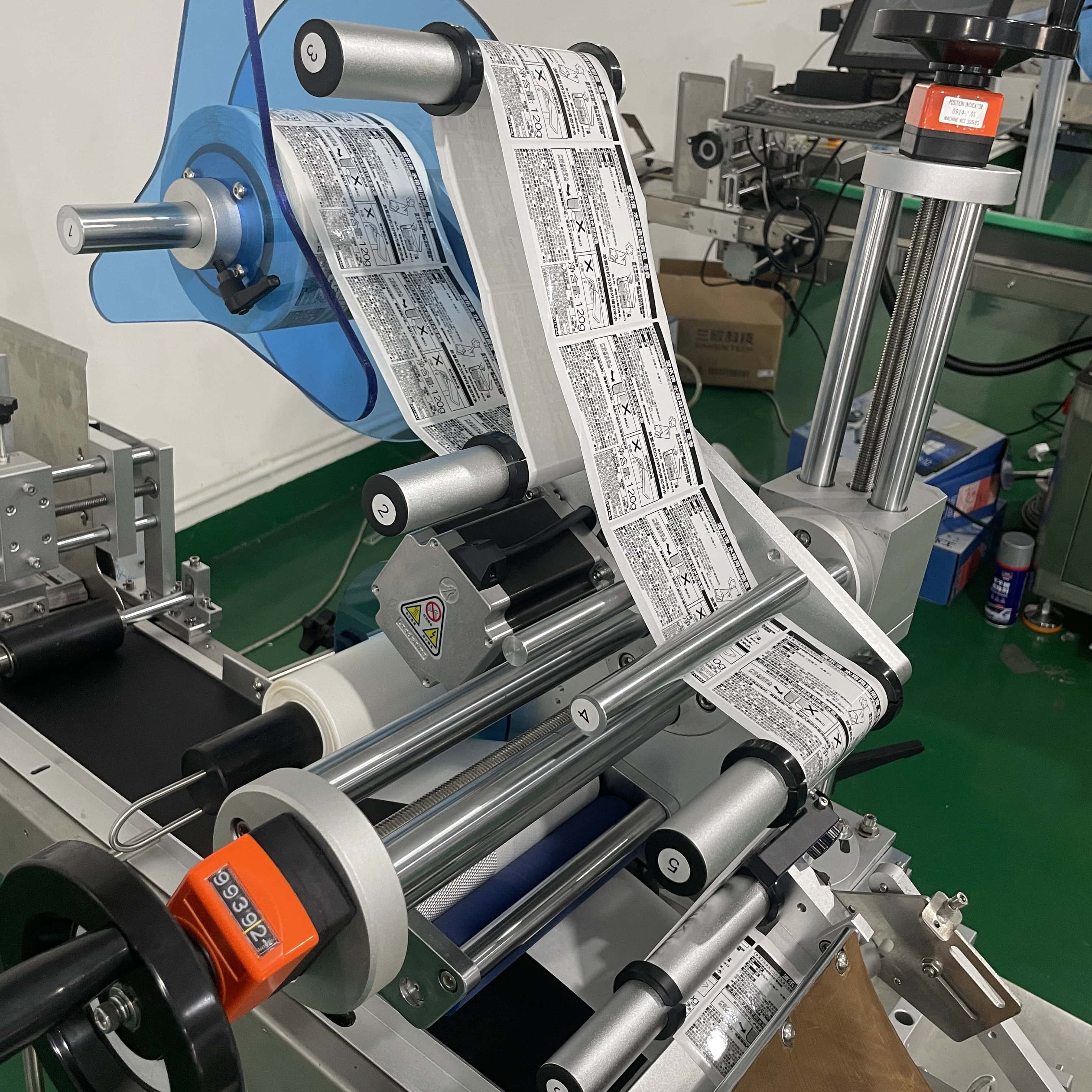Efficiency and precision are paramount. However, achieving these goals can be challenging, especially in the labeling process, where even minor errors can have significant repercussions. This is where automatic labeling machine learning (ML) comes into play, offering advanced solutions to optimize performance.
Automatic labeling machine learning refers to the integration of machine learning algorithms with labeling machines to improve their accuracy, speed, and adaptability. These algorithms analyze past data, identify patterns, and make real-time adjustments, ensuring that labels are applied correctly every time. The result is reduced waste, fewer errors, and enhanced productivity.
This technology is not just an upgrade but a complete transformation of how labeling machines operate. Let’s explore various aspects of this innovation and its impact on the industry.

How Does Automatic Labeling Machine Learning Enhance Accuracy?
One of the primary benefits of ML in labeling machines is the significant improvement in accuracy. Traditional labeling systems often struggle with inconsistencies due to variations in product shapes, sizes, and surface textures. ML algorithms can overcome these challenges by analyzing these factors and adjusting the labeling process accordingly.
Moreover, ML systems continuously learn from real-time data, allowing them to fine-tune the labeling process. This capability enables the machines to adapt to subtle changes in the production environment, such as shifts in temperature or humidity, ensuring consistent label quality. This level of precision is difficult to achieve with conventional methods.
Can Automatic Labeling Machine Learning Reduce Costs?
Cost reduction is a critical concern for manufacturers. ML can play a significant role in minimizing operational costs by reducing the need for human intervention. Unlike traditional machines that require frequent monitoring and manual adjustments, ML-powered systems can operate autonomously, identifying and correcting issues in real time.
Additionally, these systems can predict when maintenance is needed by analyzing wear and tear patterns. This predictive maintenance approach prevents unexpected breakdowns, reduces downtime, and saves on repair costs. As a result, manufacturers can maintain smooth operations and improve overall efficiency.
How Does Automatic Labeling Machine Learning Offer Flexibility?
Flexibility is vital in an ever-changing market. ML-powered labeling machines can handle a diverse range of products without extensive reconfiguration. The technology can learn and adapt to various label types and materials, automatically adjusting the application method to suit each one.
Furthermore, ML facilitates rapid changeovers between products. Unlike traditional machines that require lengthy setup times, ML systems can recall previously learned configurations, enabling quick transitions and maximizing production throughput.
How Does Automatic Labeling Machine Learning Improve Quality Control?
Quality control is essential in manufacturing, and ML excels in this area. By employing advanced image recognition and data analysis, ML systems can inspect products for defects during the labeling process. This ensures that only products meeting quality standards reach the market.
Additionally, ML can generate detailed reports on labeling performance, identifying trends and recurring issues. This data is invaluable for continuous improvement, allowing manufacturers to refine their processes and maintain high-quality standards consistently.
How Does Automatic Labeling Machine Learning Impact Customer Satisfaction?
Customer satisfaction hinges on product quality and consistency. ML-driven labeling machines ensure precise and consistent labeling, which is crucial for maintaining brand image and customer trust. Consistently high-quality labels reduce the risk of product recalls and protect the brand’s reputation.
Moreover, ML can provide insights into consumer preferences by analyzing labeling data. This information helps businesses tailor their products to better meet customer needs, enhancing satisfaction and loyalty.
Is Automatic Labeling Machine Learning Accessible for Small Manufacturers?
The integration of ML into labeling machines may seem like a costly endeavor, but it has become more accessible. Many providers offer scalable ML solutions tailored to the needs of small manufacturers. These systems are often user-friendly and require minimal technical expertise to operate.
The initial investment in ML technology can be quickly offset by the benefits, such as increased efficiency and reduced operational costs. For small manufacturers looking to stay competitive, adopting ML in labeling processes is a wise choice.
How Does Automatic Labeling Machine Learning Ensure Compliance?
Compliance with industry standards is crucial, and ML can help ensure labeling meets all necessary specifications. ML algorithms can verify that essential information, such as expiration dates and product codes, is correctly formatted on each label.
Additionally, ML systems can track and document the labeling process, providing a digital record useful for audits and regulatory checks. This level of traceability helps manufacturers avoid compliance issues and potential legal complications.
What Does the Future Hold for Automatic Labeling Machine Learning?
The future of ML in automatic labeling machines is promising. As technology advances, we can expect even more sophisticated capabilities, such as real-time language translation for international labels or instant adaptation to new regulations. The combination of artificial intelligence and ML could lead to self-optimizing machines requiring minimal human intervention.
As ML becomes more integrated with other Industry 4.0 technologies, such as IoT and big data analytics, the potential for innovation expands. This integration will result in smarter, more efficient, and more adaptable labeling machines, meeting the evolving demands of the market.
Conclusion
Automatic labeling machine learning is more than just a technological upgrade; it’s a revolutionary change in the labeling industry. From enhancing accuracy and reducing costs to offering flexibility and ensuring compliance, ML offers numerous benefits that can significantly improve manufacturing processes. As technology evolves, the possibilities for innovation are endless, making this an exciting time for the industry.









